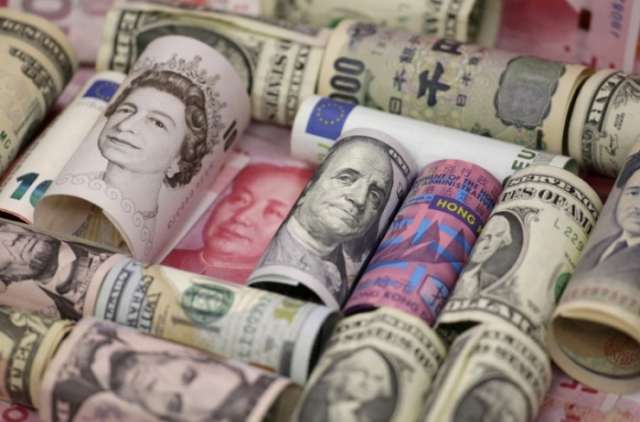North Korea risks support yen, euro struggles near 4-week lows vs dollar

The euro was steady at 132.340 yen EURJPY= after dropping more than 1 percent overnight.
The Japanese currency made sharp gains after North Korea’s foreign minister Ri Yong Ho said on Monday that President Donald Trump had declared war on the country and that Pyongyang reserved the right to take countermeasures, including shooting down U.S. bombers even if they are not in its air space.
Japan is the world’s largest creditor nation and traders tend to assume Japanese investors would repatriate funds at times of crisis, thus pushing up the yen. Many wonder, however, if Japanese assets would really remain in favour if an actual war broke out in Asia.
The Swiss franc, also sought in times of geopolitical tensions, stood at 0.9662 franc per dollar CHF= after gaining about 0.3 percent overnight.
“The dollar tends to fall on flare ups in North Korean-related matters, but whether the Federal Reserve can hike interest rates in December as they projected still remains the ultimate decider,” said Shin Kadota, senior strategist at Barclays in Tokyo.
Immediate focus was on what views could be expressed by Fed Chair Janet Yellen, who is due to speak in Cleveland at 1645 GMT on “inflation, uncertainty, and monetary policy.”
The euro was 0.1 percent higher at $1.1857 EUR= but in close reach of $1.1832, its lowest level since Aug. 31 plumbed the previous day when it sank nearly 1 percent.
The common currency took a knock after German Chancellor Angela Merkel won her country’s elections over the weekend but saw a chunk of support shift to the far right.
The euro faced additional pressure after European Central Bank President Mario Draghi singled out currency volatility as a source of uncertainty that required monitoring and argued that “ample” ECB accommodation was still needed, because a premature and hasty move could unravel its work.
The euro had risen to a 2-1/2-year high of $1.2092 soon after the ECB’s Sept. 7 policy meeting. Euro bulls were buoyed by the central bank’s signal of an eventual end to its large bond-buying scheme, while the dollar’s weakness has also helped.
At the same time the 10-year German bund yield DE10YT=TWEB hit a two-month low as the debt markets interpreted the ECB’s message differently, seeing the central bank taking a cautious and patient approach to tapering its stimulus.
But the divergence between the euro and German yields that occurred has narrowed since.
“It was hard to see the euro and yields continuing to move in different directions, which was only possible as some speculators appeared to have gone to great lengths to push the euro higher,” said Masashi Murata, senior currency strategist at Brown Brothers Harriman in Tokyo.
“But these euro long positions are beginning to become untenable as the dollar is stronger and U.S. yields are higher after the Fed’s policy meeting this month.”
The New Zealand dollar extended the previous day's slide and was last down 0.2 percent at $0.7249 NZD=D4.
The kiwi sank 1 percent overnight after New Zealand Prime Minister Bill English’s National Party won the largest number of votes in Saturday’s election but not enough seats to rule outright, leaving investors likely facing weeks of political horse-trading before a government is formed. [AUD/]
The dollar index against a basket of six major currencies was a shade lower at 92.573 .DXY after rising 0.5 percent the previous day to a three-week high of 92.724.















































